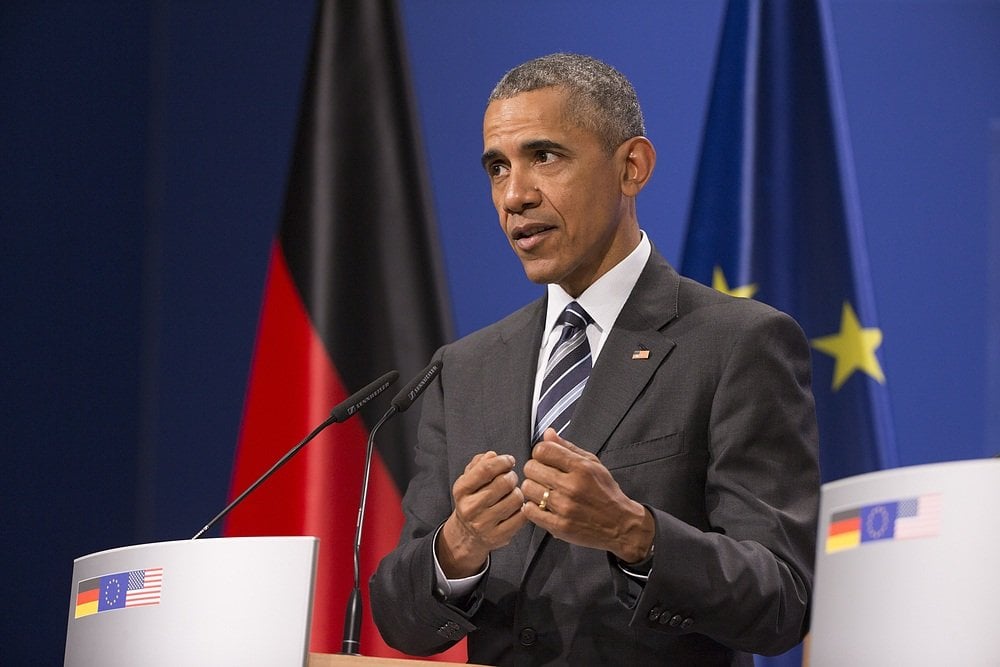
If it weren’t for a week of wrenching tragedy and national soul-searching, you might have heard a lot recently about “precision medicine,” the concept of tailoring treatment for each patient. The Obama administration made a major push last week for its Precision Medicine Initiative (PMI), which in any other news cycle would have made real headlines. Also referred to as personalized medicine, precision medicine is based on the idea of using a trove of genetic and clinical information to determine ahead of time which drugs will work best for which patients, at which doses, and in which combinations. Proponents contend that this approach will reduce adverse events, dramatically improve patient outcomes, and eliminate the costly trial-and-error process currently used to select treatments.
President Obama published an opinion piece entitled “Medicine’s next step” in the Boston Globe to champion the personalized medicine cause and sketch out some of the progress made so far toward the PMI goals. Meanwhile, the National Institutes of Health announced $55 million in grant funding to establish important components for the study of 1 million people here in the U.S. This followed the $142 million awarded to the Mayo Clinic six weeks earlier to build a biobank for storing patient samples, such as blood and DNA. (As we reported in May, NIH officials have fast-tracked funding and other processes to give the PMI much-needed momentum before President Obama leaves office.)
“This is one of the greatest opportunities we’ve ever seen for new medical breakthroughs, but it only works if we collect enough information first,” Obama wrote in the op-ed. The President wants to generate enthusiasm for the initiative’s aim to gather clinical, genetic, and other information from 1 million volunteers across the country. The new grants will enable clinics to recruit participants from their patient population, beginning with academic medical centers in New York City, Chicago, Tucson, and Pittsburgh. The Department of Veterans Affairs will also take part in the recruitment effort.
While patient recruitment is a tried-and-true approach for government-funded biomedical programs, the PMI also aims to allow participation from anyone who wants to join. The program established a new center that will develop mobile apps to permit direct enrollment for people who haven’t been recruited by their physician. According to the NIH, these apps will be deployed on several platforms to reach and include people with or without smartphones.
The final component in this funding round is a project aiming to advance personal health data organization and storage, to be completed by Vanderbilt University Medical Center, the Broad Institute, and Google spinout Verily. The organizations are responsible for building a secure database of PMI information that can be accessed by scientists (including amateurs, not just credentialed scientists, the NIH announcement notes) for all kinds of data analysis.
“Precision medicine gives us the chance to marry what’s unique about America — our spirit of innovation, our courage to take risks, our collaborative instincts – with what’s unique about Americans – every individual’s distinctive genetic makeup, lifestyles, and health needs,” Obama’s upbeat op-ed concluded. “In doing so, we can keep ourselves, our families, and our nation healthier for generations to come.”
The President is echoing a point of view shared by many genome scientists, and a number of other countries are also trying to prove its merit. A national genetic database in Iceland, established years before most other countries began such projects, has already been used to identify genetic variation that’s more common among residents. The country is a genetic gold mine, with excellent record-keeping and a fairly isolated population. Among other discoveries, this work has provided new clues for understanding why Icelanders have a higher incidence of certain diseases than other populations.
If the American PMI is a success, it may yield crucial information to help make sense of the illnesses that affect Americans, as well as why some people seem to have genetic protection against particular diseases or conditions. And we might all become healthier as a result of acting on such insights.
Obama: Genetic Data + Precision Medicine Will Improve American Health
Lost in a news cycle rife with heartbreak, the Obama administration made a major push last week for its Precision Medicine Initiative (PMI). Also referred to as personalized medicine, precision medicine is based on the idea of using a trove of genetic and clinical information to determine ahead of time which drugs will work best for which patients, at which doses, and in which combinations. It could be the first step in an important breakthrough for American health.
















